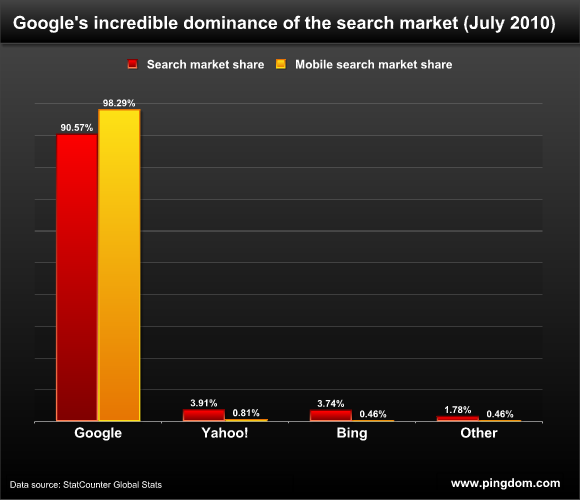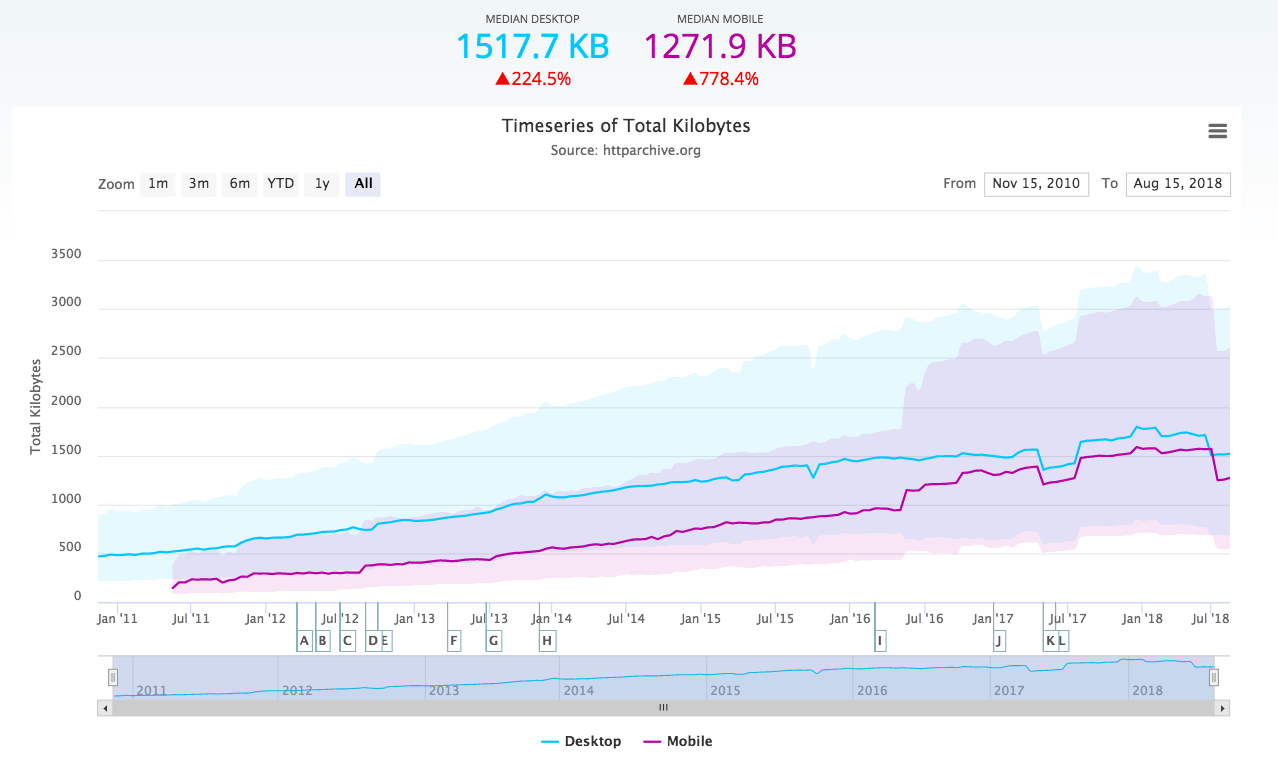 Google has been dominating the search engine market for years, but at least there are some competitors that have a few percent each.
Google has been dominating the search engine market for years, but at least there are some competitors that have a few percent each.
But if you look at mobile search, i.e. search on mobile devices, which is more or less the smartphone market, Google is utterly crushing the competition to a level that it’s never managed in the regular search market.
Just look at this very telling chart, showing Google’s overall search and mobile search market shares in relation to those of Yahoo and Bing, its two closest rivals. (These are global stats.)

Above: The search market share does NOT include mobile search (confirmed with Statcounter).
Pretty incredible, isn’t it?
There are two things we’d like to emphasize here. They are two sides of the same coin, but worth pointing out separately:
- Google’s mobile search market share dominance is almost complete. The company has made an incredible land grab in the mobile sector. Compare this to the other search engines. None of them have managed to claim even one percent of the mobile search market.
- Google’s piece of the mobile search pie is even larger than their already impressive share of the overall search engine market. For Yahoo and Bing, the situation is the opposite. Their mobile efforts are nothing compared to their search engine market share.
If Google firmly believes that mobile is the future (which is the opinion of CEO Eric Schmidt), they are making all the right moves.
And Google’s mobile dominance has been increasing. One year ago, its share of the mobile search market was 95.58%. That’s significantly less than today’s 98.29%. Who knows, in a few months, perhaps they will pass 99%. At this point this actually seems plausible.
What can change?
Needless to say, Android is Google territory, so they have that market gobbled up. Google will remain the search engine of choice on that platform.
Then there’s the iPhone, which is another story entirely. Google’s grip on mobile search could be broken if Apple kicks Google out of the iOS platform. Even though the companies are currently rivals in the mobile market, we don’t think that is likely to happen. For one, we suspect users would be too annoyed for Apple’s liking.
Another thing that could potentially happen is that Windows Phone 7 becomes a huge success (something we’re skeptical to at this point in time), which would boost Bing’s market share since Microsoft would of course put its own search engine as the default in its own mobile OS.
Conclusion
Google seems to have taken the necessary steps to bring its search market dominance over to the mobile sector. This much thanks to its early collaboration with Apple and later secured by Android, which ironically now is the very thing that threatens Google’s dominance since it has made Apple a rival.
But for now, Google reigns supreme.
A side note on the data: This data comes from StatCounter, and is global data based on information from visitor stats from more than three million websites.


























